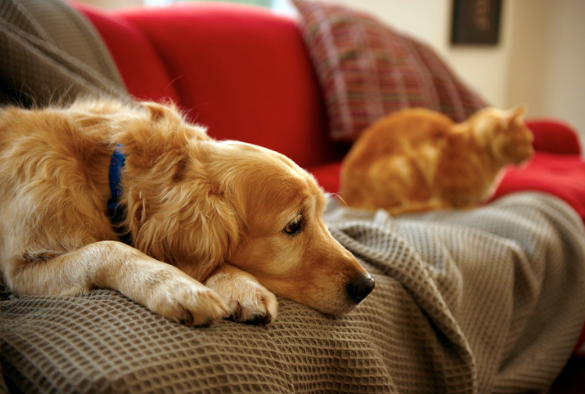
A new study to investigate whether pets are susceptible to COVID-19 has found that a small proportion of cats and dogs sampled have neutralizing antibodies to the virus.
Scientists from LSTM, the University of Liverpool and the Universities of Bari and Milan in Italy tested samples from over 500 pets collected during visits to vets in Northern Italy. While no animals tested PCR positive for the virus itself, 3.4% of dogs and 3.9% of cats had measurable SARS-CoV-2 neutralizing antibodies, with dogs from COVID-19 positive households being significantly more likely to test positive than those from COVID-19 negative households.
The results of the study, which are yet to be peer reviewed, have been published as a pre-print on the website BioRxiv.
Co-author Professor Alan Radford from Liverpool's Small Animal Veterinary Surveillance Network (SAVSNET) said: " Whilst none of the tested animals were shedding virus at the time of sampling, vets and the public need to continue to be aware that pet animals living in COVID-19 households will almost definitely have virus on them, and our research adds to the evidence that suggests they may also be infected. We must keep this in context though. There is no evidence for pet animals transmitting this virus to people. The overwhelming majority of people that are infected seem to get COVID-19 from other people they contact, and this is why following local guidelines on social distancing and hygiene remain critical."
LSTM's Dr Ian Patterson, responsible for performing the serological assays in this study, said: "The assay we have used is considered the gold standard of antibody assays, measuring the ability of sera from these animals to neutralise an isolate of SARS-CoV-2 produced in the laboratory. The levels of antibody found were surprising and suggest we need to continue such studies looking at animals in the future. It was particularly interesting to see that the presence of antibodies in dogs, but not cats, were linked to the household COVID-19 status, perhaps suggesting the interactions between owners and dogs under natural conditions of pet ownership may make them more susceptible."
Professor Nicola Decaro from the University of Bari is a world-renowned veterinary virologist with over 50 papers on coronaviruses of animals. He said: "Understanding the role of pet animals in this pandemic is very challenging at a time when clearly the research and medical focus has to be on human health. This is the largest study of its type to date, undertaken in regions of Italy where human infection was high, and would not have been possible without the support of veterinary diagnostic laboratories, local practitioners, and an International collaboration involving researchers in Bari, Milan and Liverpool. Our results clearly suggest pet animals can be infected only sporadically, thus likely not representing a source of infection for human being. The priority has to remain on humans, but it will be important to better understand the role of animals if we are to fully control this pandemic."
The authors call for further work to be carried out to better understand the implications for pets, particularly those in COVID-19 households, and advocate for pet animals to be included in population studies. "We must not detract from vital human research", adds Professor Radford, "but when disease in the human population is further reduced and human contact tracing is accessible, we may need to know our furry friends aren't helping even in a small way to maintain SARS-CoV-2 in the population."
Pre-print reference
Evidence of exposure to SARS-CoV-2 in cats and dogs from households in Italy https://doi.org/10.1101/2020.07.21.214346






